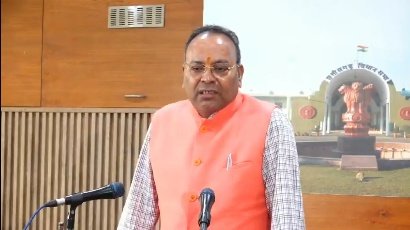Raipur. The corridors of the Chhattisgarh Assembly echoed with heated exchanges on Tuesday as legislators from the Bharatiya Janata Party (BJP) raised questions regarding the performance of the erstwhile Congress government, particularly concerning the recently released report of the Quantifiable Data Commission. Both inside and outside the assembly, BJP lawmakers leveled accusations against former Chief Minister Bhupesh Baghel, alleging politicization of the Quantifiable Data Commission's findings.
Senior BJP legislator Ajay Chandrakar highlighted the opacity surrounding the utilization of the data, claiming that beyond Baghel, clarity on its purpose remains elusive. Chandrakar emphasized the imperative of making such crucial information accessible to the public, asserting that transparency in data dissemination is paramount for governance integrity.
In response, Chief Minister Sai assured the public of his government's commitment to transparency, stressing that the citizenry has a fundamental right to access quantifiable data, dismissing the issue as apolitical and instead framing it as a matter of data integrity.
Contrarily, Minister Braj Mohan Agrawal, castigated the Congress, accusing the party of orchestrating the Quantifiable Data Commission for electoral gains and lamenting the failure to present the report in the assembly or to the public. Agrawal emphasized that even the Scheduled Castes felt marginalized by the lack of transparency.
Senior BJP legislator expressed dismay over the opacity shrouding the commission's findings, noting that the report failed to materialize in both the High Court and Supreme Court. He decried what he perceived as a pattern of misinformation perpetuated by the Baghel government and the Congress.
As the debate rages on, Congress legislator Ramkumar Yadav sought to reframe the discourse, alleging that the BJP harbors antipathy towards reservations. He underscored the necessity of prioritizing Chhattisgarh's interests and asserted that the BJP's stance on reservations runs counter to the state's welfare.
The unfolding discourse underscores the critical juncture at which Chhattisgarh finds itself, balancing between political rhetoric and the imperative of transparent governance. As stakeholders on both sides navigate the intricacies of the debate, the fate of quantifiable data and its implications for governance remain central to the discourse.

